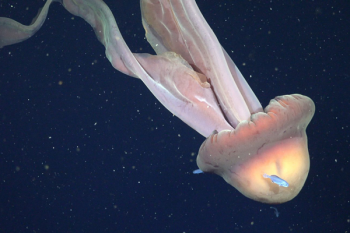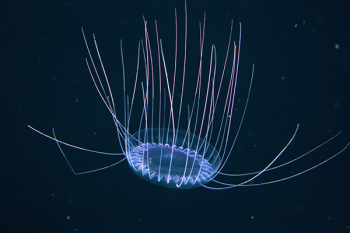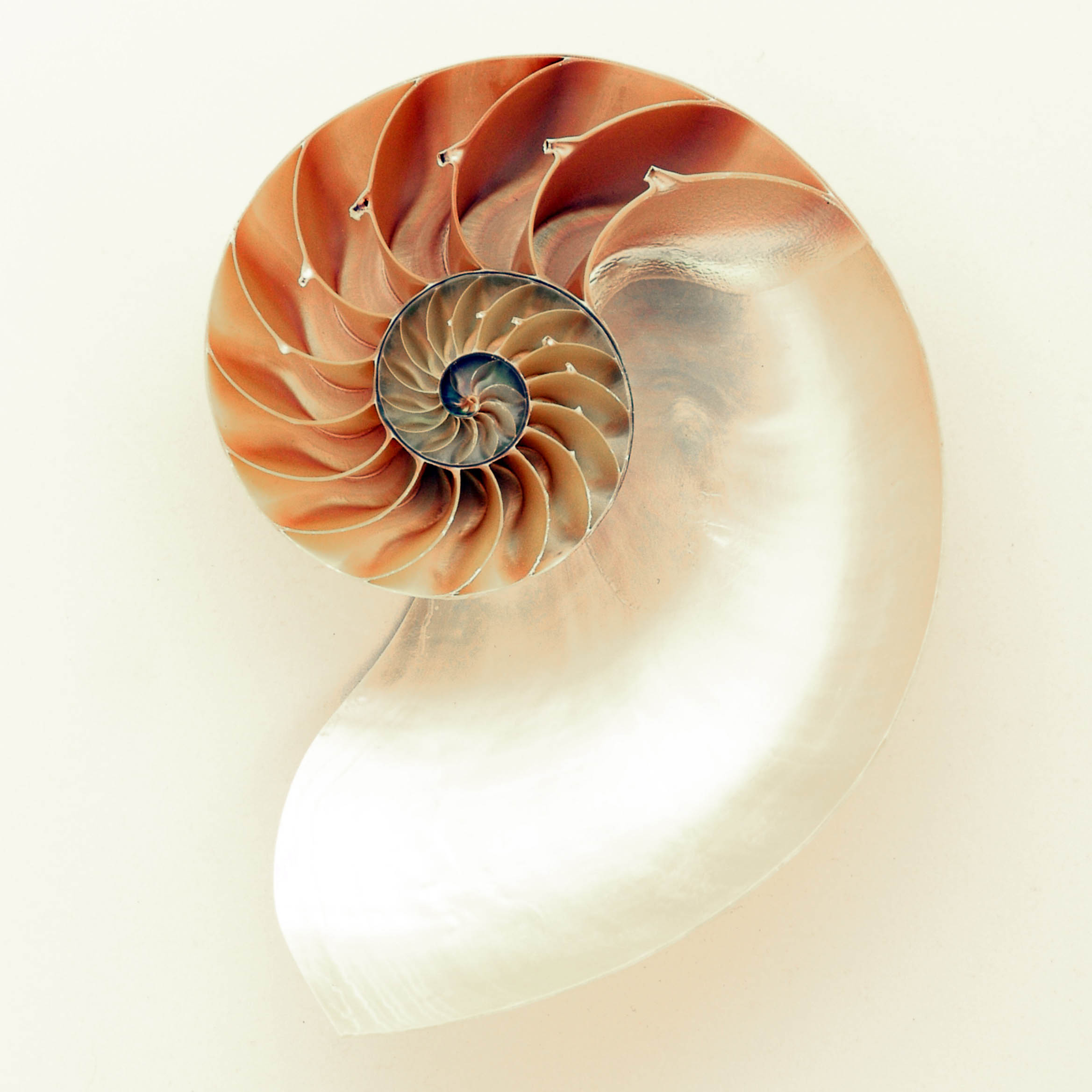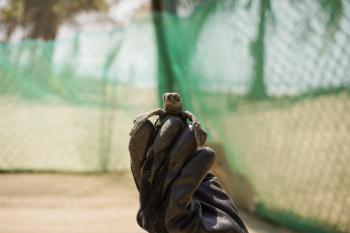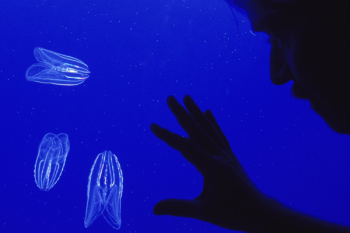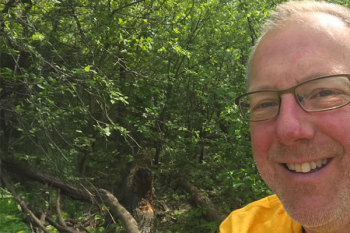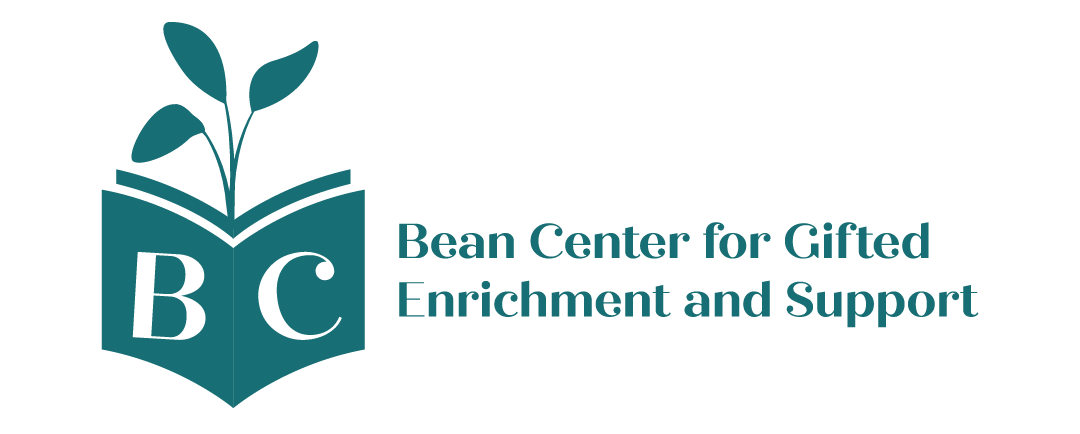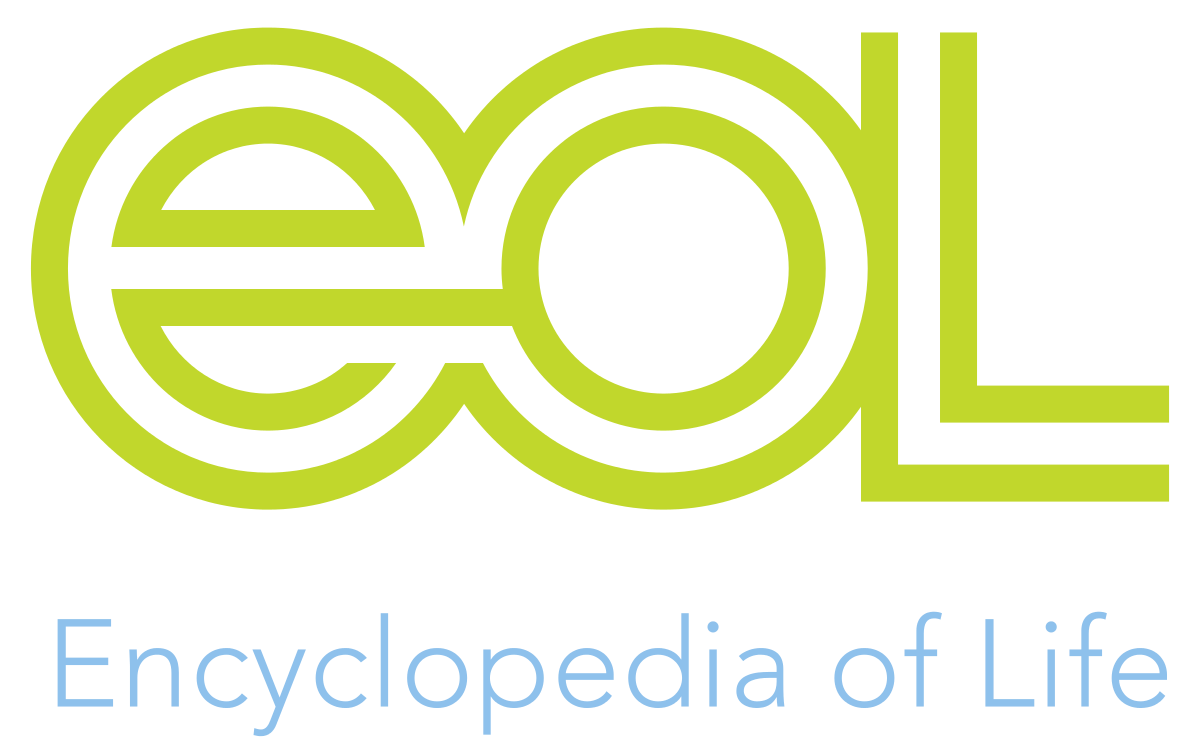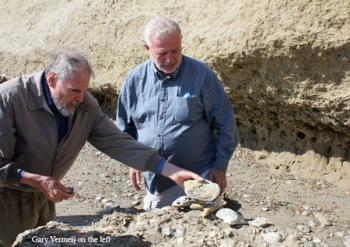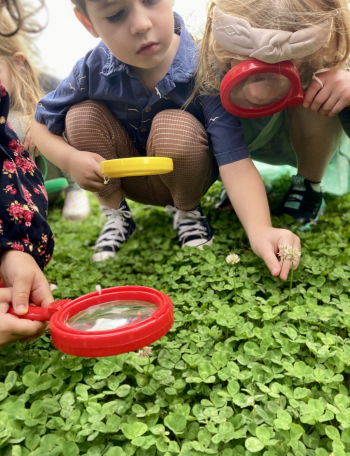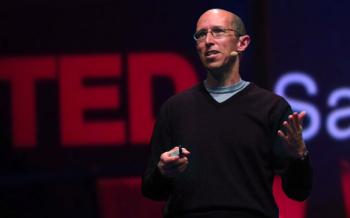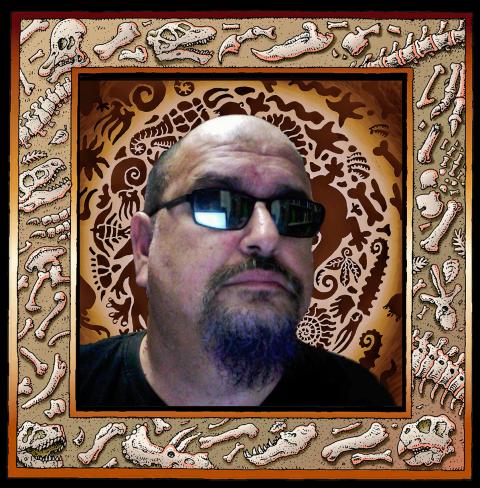
Henry Gee is a self-confessed, card-carrying “Paleo-nerd”. Like the Tree of Life, once he starts creating, you just can’t keep Henry down.
If you listen to the narration of the animated Tree of Life, you hear a scientist and blues musician, riffing on the unfolding of the tree. Henry has always been a fan of Ray Troll’s art. Ray asked Henry to both write and speak the narration for the animated Tree of Life video on Shape of Life. He followed the tree and recorded the narration in his home studio improvising with his deep knowledge of evolution.
Henry has been a nerd since his parents took him to the Horniman Museum, known for its taxidermized animals which led him to the Natural History Museum in London as a five-year-old boy. In a sense he has never left the museum. The dinosaurs at the museum interested him but what he really loved was the hall of fossil fish. Henry was interested in where they all came from. This was his ‘Come to Darwin Moment’.
Henry received his PhD at Cambridge University where he was a graduate student with Per Ahlberg. His research took a turn from jawless fish to ice-age bison in Britain. But Henry found himself getting a little bored with his PhD research. In order to complete a PhD thesis, you need to focus on a tiny specialty and that “wasn’t me at all,” says Henry.
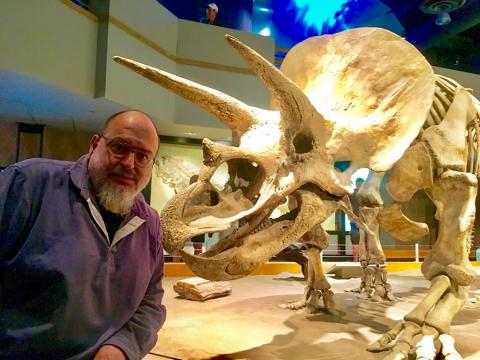
Henry’s Path Back to the Future
When Henry first started at Leeds University, he thought he’d outgrown fossils. Someone there asked him, “What do you want to do with your life?”. He blurted out, “I want to be a vertebrate paleontologist!". His response was a surprise even to him. The Natural History Museum in London ran vacation fellowships. Henry applied for an obscure project there on fossil fish. He received a fellowship and found himself back at the museum with those fossil fish. Henry met and hung-out with several radical evolutionary theorists and learned a lot paleontology in those six weeks in 1982.
Writing Science for Everyone
Towards the end of his PhD, Henry saw a notice for a job as a junior editor at Nature, the scientific journal. He’s always loved to write and jumped at the chance. On a Friday in 1987 he was a student and by Monday he was a writer at Nature. Henry wrote a daily column in the London Times on all aspects of science. Over time, he went from being a writer to editor to Senior Editor. He has been at the journal for 38 years. He’s the paleontology expert working with teams to assess original scientific papers for possible publication.
In addition to his full-time job as a scientific editor, Henry has written many books that translate science to a lay audience, including In Search of Deep Time (1999), A Field Guide to Dinosaurs (2003) and Jacob's Ladder. His most recent book is A (Very) Short History of Life on Earth: 4.6 Billion Years in 12 Pithy Chapters(2021). Here is a film that Henry wrote and narrated that illustrates that “pithy” book. He has also has written science fiction, horror and about J.R.Tolkien. Henry says, “I can’t help but write things”.
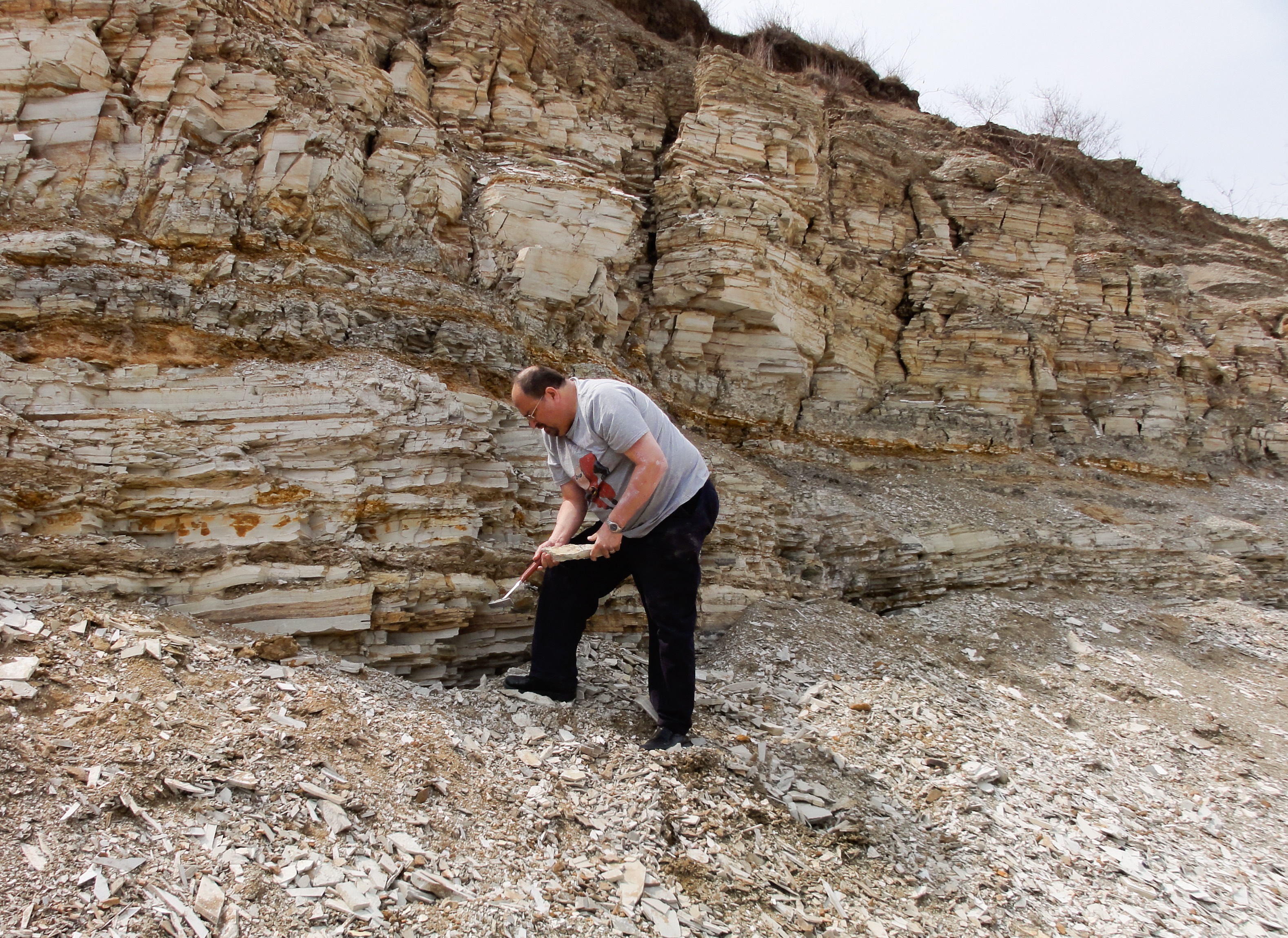
The Future of the Human Species
As a prolific writer, Henry has a new book coming out in the spring of 2025 calledThe Decline and Fall of the Human Empire: Why Our Species Is on the Edge of Extinction.
As he read more and more scientific papers, Henry became more alarmed about the extinction of our species. He wrote an article in Scientific American and then he decided to delve deeper and write a book.
There's the issue of how many humans the earth can support. Although we're seeing decreased levels of population, we continue to see limits to earth’s resources. That brings up the question who should get such limited resources?
Put a Book in Your Hands and READ!
Henry’s advice to students: “get off your device and read a book. Any book.” Even if you want to be a scientist, take humanities, read English literature. “Read people who know how to write.” As an editor, Henry looks for a narrative arc in scientific papers.
What Henry knows best is writing, and you’re only good at writing if you keep at it. It’s the same for any skill. “Everyone has a talent for something”, he says.
